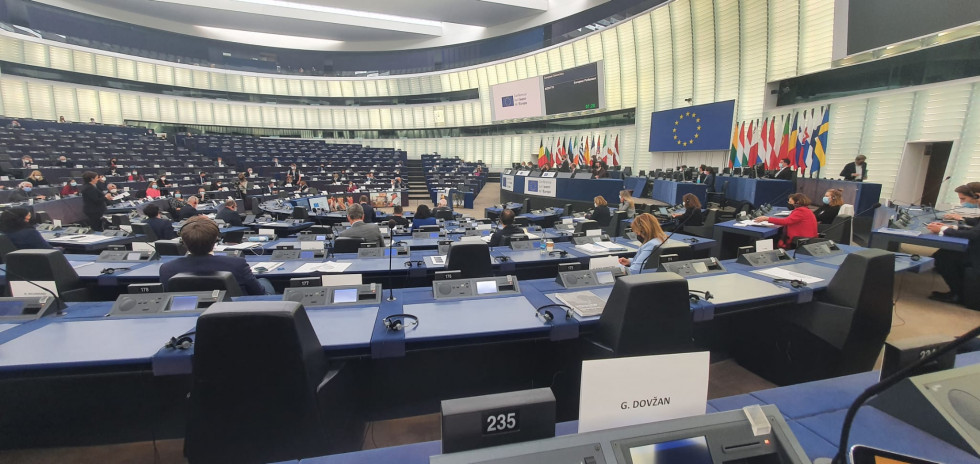The third Plenary of the Conference on the Future of Europe concludes
- Ministry of Foreign Affairs
In the debate on European democracy, State Secretary Dovžan was pleased to note that, thanks in part to the Slovenian Presidency of the Council of the EU, the Conference on the Future of Europe reached a point in the last semester that allows us at long last to discuss substantive issues and concrete proposals for the future. He gave a positive assessment of the Conference, which remains open to external stakeholders, such as representatives of the Western Balkan countries. Although they are formally not members of the Conference, their views are very important for our common future in Europe.
Speaking at the Conference Plenary, State Secretary Dovžan highlighted the two sources of the EU’s democratic legitimacy. At the constitutive level, democratic legitimacy arises from citizens who form governments through parliamentary elections. These governments then participate in the Council of the EU, the main legislative institution crucial for the respect of the principles of subsidiarity and proportionality. The Council of the EU also ensures the peaceful resolution of conflicting interests of EU Member States and the building of mutual trust between their governments, which hold executive powers. The potential to improve the democracy in the EU therefore lies with the Member States that provide plenty of room for European topics in political debates and whose national parliaments, media, and civil society stakeholders show greater involvement in monitoring the work of national governments in the Council of the EU.
At the constitutive level, democratic legitimacy of the EU is also derived from the citizens who elect the Members of the European Parliament in the European Parliament elections. Both sources of democratic legitimacy remain equally important in the light of the EU’s future democratic development, which will continue to be a union of states and citizens. State Secretary Dovžan underlined that European policies should avoid practices that move countries and their citizens away from one another instead of bringing them closer together.
The Conference Plenary is composed of 108 representatives from the European Parliament, 54 from the Council, three from the European Commission, 108 from national parliaments, 108 citizens, 80 from the European Citizens’ Panels, 27 from national Citizens’ Panels or Conference events (one per Member State), and the President of the European Youth Forum.
Eighteen representatives from the Committee of the Regions and 18 from the Economic and Social Committee, six elected representatives from regional authorities and six elected representatives from local authorities, 12 representatives from the social partners and eight from civil society also take part.


